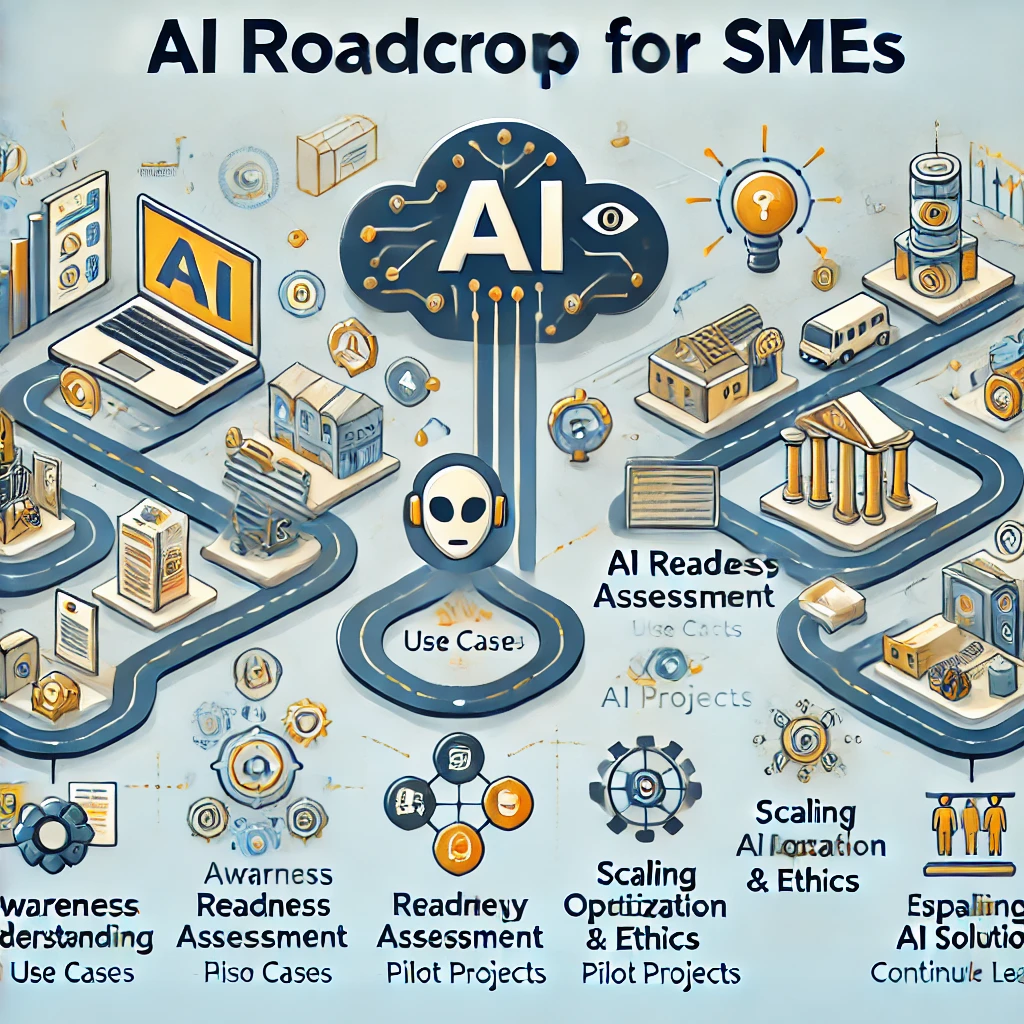Last autumn, I attended conferences on software engineering, data, and fintech in Geneva, Amsterdam, and London. Everywhere I went, one topic kept coming up: AI – artificial intelligence. At the same time, I met with several top legal industry leaders. Many of them shared a growing concern – what if they don’t adopt AI fast enough? Could they be left behind?
Now, imagine you run a small or medium-sized business with about a hundred employees. Should you be worried that AI-powered machines might take over your industry?
In the short term – probably not.
But that doesn’t mean you can ignore what’s happening. The impact of AI depends on your industry, and staying informed is vital. And remember, you shouldn’t start building anything before having a solid foundation in terms of data and processes.
3 things to do before adopting AI
Thinking about using AI in your business? Here are three key tips to help you take a productive approach and reduce any anxiety you might have about the process.
1. Identify AI and automation opportunities
In most cases, AI and automation are efficiency tools – but not everything can or should be automated. Start by listing the processes in your business that could benefit from automation. Then, prioritize them based on your business goals. You don’t need to decide right away whether to use traditional automation or some fancy AI automation – leave that to the experts. However, without your business insights, specialists won’t be able to propose the right solutions.
2. Assess your data
AI relies on high-quality data. Look at what data you already have – whether it’s in spreadsheets, paper documents, or stored on a server. Do you have enough? Is it reliable? A data audit will help determine if your existing data can support automation. To get an accurate assessment, consider involving data scientists and engineers, as they can spot issues that might not be obvious at first glance.
3. Develop a data strategy
Perhaps your organization doesn’t have enough data or the data is of a poor quality. Either way, it’s not enough to pull off AI automation that would really benefit your business. That’s where a solid data strategy can help. A well-planned approach to collecting, organizing, and improving data lays the foundation for a successful automation – whether you use AI or not. Investing in data management sets the stage for your business’s future success.
Whatever you do, don’t rush to buy an AI tool without knowing how it will actually help your business. Neither is there any tangible reason to stress and obsess about AI if you don’t have a clear reason to worry.

The bottom line: take it step by step
Being overly optimistic (unrealistic) about AI without a clear plan isn’t helpful either.
What you need is a pragmatic approach – figure out where AI and automation can truly make a difference, build a solid foundation of data, and create a step-by-step plan to put it into action. If possible, start small with an MVP (minimum viable product) to test your ideas before going all in.
And remember – you don’t have to figure it out all on your own. Us and other experts out there are glad to help!
Tiit Kuuskmäe is a Tech Lead at Concise Systems, mostly working on medtech and fintech projects.





